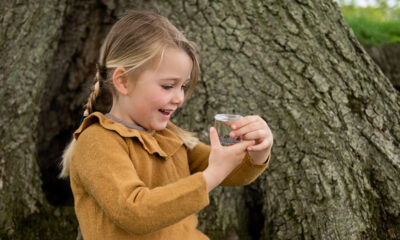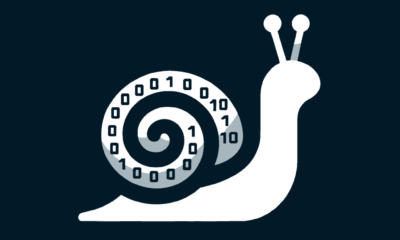Activities
Getting Along with Others – Activities

Toddlers have a lot of big emotions – they’re learning how to exist in the world and how to navigate day-to-day experiences while managing their emotions and feelings. They often don’t have a filter or even know what is or isn’t appropriate to say or do, and at times this can include lashing out or hurting others. When your child wants something and doesn’t know how to express it, they may hit, bite, scratch, or throw something. They aren’t trying to be mean or hurtful, they’re just trying to figure out how to get what they want!
When your toddler acts out by hurting someone or something, it is often because they’re having difficulty dealing with really big feelings, such as frustration or anger. When we experience a big emotion, our brain goes into survival mode, and we don’t have access to our thought process. In order to bring our thinking brain back online, we need to implement a calming strategy such as taking a deep breath. Then we can identify and name the emotion, the brain can calm, and we can find the words to express what we want or need.
You can support your child by paying close attention to their emotions and trying to head off any violent actions before the frustration takes over. Ask them how they are feeling, and help them name their emotion. Validate their feelings by saying something like, “I understand you are angry.” It may take a few moments for them to calm down. Then you can help them identify and ask for what they want or need. As your toddler’s communication skills develop, challenging behaviors will often decrease naturally.
How to help prevent your child from acting out physically
-
- Help your child recognize and express their feelings. Talk about your own feelings with your kids. Teach them the name of feelings during everyday activities – when your bag of groceries rips in the driveway, explain that you are angry. Do this when you notice your child having feelings too. If their sibling took their favorite doll, say “How are you feeling? Are you angry because your brother is playing with your doll?” Putting names on feelings is the first big step in identifying and expressing them.
-
- Help your child say what they want. Help your child by asking for what they want in appropriate situations. If your child has waited patiently for the doll, remind them to say “My turn, please” or teach them to sign if they are not verbal yet. This is a great way for younger toddlers to communicate calmly while not being able to speak just yet.
-
- Prepare your child for playing with others. When you know a play date is coming up, talk to them about playing with their friends. Remind them to play gently and take turns. You can even tell them that they can always come get you if they feel upset or overwhelmed.
-
- Watch your child closely. If possible, stay nearby and watch your child while playing. Steering them in the right direction before problems arise will create a calmer play environment, and give you opportunities to praise your child. If you see that your child is about to throw a toy or hit, act quickly and prevent them from hurting themselves or others. Later on, speak to them about what was unsafe at the moment and what can be done next time.
It’s important to remember that toddlers are brand new to social situations, and are still actively developing the skills needed to be a good friend, to share, and to exist peacefully around others.
Be a good role model for your child, as they want nothing more than to be just like you! Use everyday opportunities to show them how to use kind words, manage emotions, ask for help, greet others, and stay calm in tricky situations. Model for your child how to say “sorry” when it’s needed, and how to ask for things that you need. Your toddler is like a sponge, and will soak up each and every lesson you teach them this way!
Finally, encourage behavior that you like to see in your child. If they ask for a turn on a swing instead of demanding or pushing the child currently swinging, tell them that you’re proud of them! If they say please when waiting for a toy, talk about how nice it is to see them asking. When your child isn’t actively in a situation that requires social interaction, you can talk with them about why you value this behavior in your family, and how great it is that they’re exhibiting it.
Triple P – Positive Parenting Program
Are you interested in receiving more parenting advice? Triple P Online – Positive Parenting Program could be for you! This online parenting program allows you to take a parenting class in the comfort of your own home!
If you live in Lane County, you can get Triple P Online for free by filling out the form on the Triple P page. A staff person from Activities will send you an access code within 24 hours and you’ll be able to start using the program right away! For more information about the program and to sign up visit the Triple P page.
-

 Destination9 months ago
Destination9 months agoSingapore Airlines CEO set to join board of Air India, BA News, BA
-

 Breaking News10 months ago
Breaking News10 months agoCroatia to reintroduce compulsory military draft as regional tensions soar
-

 Gadgets4 months ago
Gadgets4 months agoSupernatural Season 16 Revival News, Cast, Plot and Release Date
-

 Tech News1 year ago
Tech News1 year agoBangladeshi police agents accused of selling citizens’ personal information on Telegram
-

 Productivity12 months ago
Productivity12 months agoHow Your Contact Center Can Become A Customer Engagement Center
-

 Gadgets4 weeks ago
Gadgets4 weeks agoFallout Season 2 Potential Release Date, Cast, Plot and News
-

 Breaking News10 months ago
Breaking News10 months agoBangladesh crisis: Refaat Ahmed sworn in as Bangladesh’s new chief justice
-

 Toys12 months ago
Toys12 months ago15 of the Best Trike & Tricycles Mums Recommend























